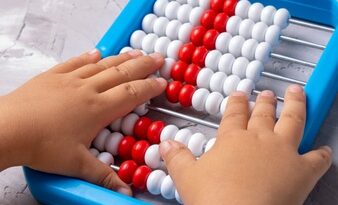Unseen Motherhood

“Sab hi paaltay hain, ismein konsi bari baat hai?”
“Aise hi tu nai na jannat milti paon talay?”
“Humne tu 10 10 bachay paalay hain, khud hi pal jaatay hain, saath saath susral ki khidmat bhi ki… yeh aaj kal ajeeb nakhray hain maaon kay”
There are countless other such statements that are thrown at mothers. Mostly, they come from mothers themselves, to other mothers. There is something inherently wrong with such statements, because we all know that majority of the women passing such comments, AND their children, have a myriad of physical, emotional, psychological, AND spiritual issues (we all do), that plague their day-to-day living. No, the point is not to criticize their parenting, or to discount their efforts. The point is to criticize the lack of acceptance that there can always be a better way of doing things. A true believer does not become complacent in his/her efforts, rather continues to seek knowledge, and strive to better his/her decisions and actions. All parents do what they feel is best for their child but being humble enough to accept that there have been mistakes on the way, is essential. Merely having this humility can help in stopping our insensitive remarks and comments to others.
However, the point of this post is something bigger than that. Even if we assume that a woman actually raised ten kids with excellence, and she really feels it’s no big deal to raise children keeping in mind their physical, emotional, psychological, and spiritual health, there’s something more to it. She should realize that she probably got very lucky bi-idhnillah if that’s the case. There are so many aspects of motherhood that are “unseen” by everyone in the world, except our Creator.
Every mother-child pair is a unique one. The mother has her own baggage, her traumas, her ingrained patterns, her overall health, her conscious or subconscious belief systems regarding motherhood, and her circumstances and trials. Similarly, every child has his/her own personality, strengths, weaknesses, will, eating and sleeping patterns, and kinds of health or sickness, decreed by Allah SWT. These are all things beyond the number, age, and gender of children, which is what is often commented upon only. Therefore, a combination of all this gives rise to certain unique conveniences, and unique difficulties, which are experienced by a mother at different moments during the day, or night, in front of her eyes, or inside her mind and heart. It is very much possible that a pregnant mother is in more difficulty than a mother of an infant, and it is possible that a mother of an infant is in an extreme predicament, while a mother of a toddler (or three toddlers) is in some ease (at a certain moment). Allah SWT is the Only One who is All-Encompassing in His Knowledge of the seen and unseen. Making general statements about the eases or difficulties of a third person should be none of our business. What should be our business is to be kind to anyone and everyone that we cross our paths with.
A mother might be trying to be present with her child, to co-regulate her child’s emotions or to validate her child’s pain, while she is herself on the verge of breaking down. Another mother might be striving to provide home-made healthy meals to her child and keeping a check on the child’s screen time. A particular mother might be conscious of teaching her child proper language skills and facilitating natural learning in her home. Another mother might not be doing any of these things and just struggling to get through the day, so that she puts her children to bed and cries alone in another room. A mother might be fully involved in countering the negative influence that her extended family or community has on her child, while another mother might be the negative influence herself, unfortunately (a possible and common situation, requiring acceptance and healing). A mother might be fully invested in raising her children, without worrying about household chores, while another mother is forced by circumstance to perform all child-rearing and home-making tasks by herself: an immense load that was meant to be shared amongst members of the community. A mother might be making effort (and feeling unsuccessful) in providing a clean and calm environment at home for her family, while another mother might be financially involved in (and stressed about) putting food on the table. A mother might be getting pregnant every single year despite all attempts to stop it, and wondering when it would stop, while another mother might be attending therapy due to the anxiety that her fertility treatment is causing her, just because she wants to give her child a sibling.All these mothers are raising their children. They have different struggles and situations. We are not the judge of who has it harder.
Jee, sab paaltay hain. Isliye humare paas bohat log hain jinki hum madad karsaktay hain. Agar haathon se nahin kar saktay, tu kamazkam zubaan se unka hosla barhayein, na keh kam karein.



